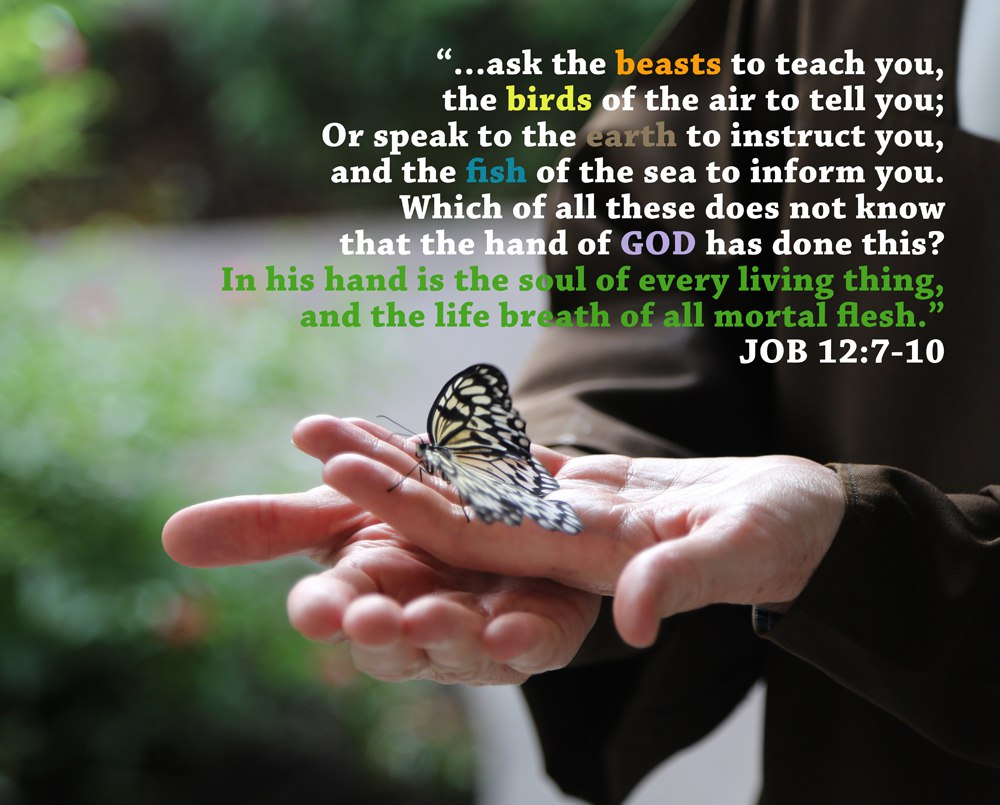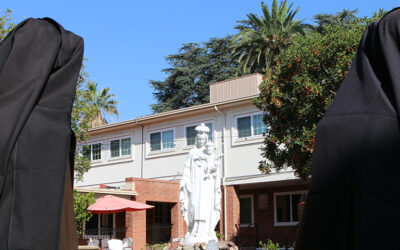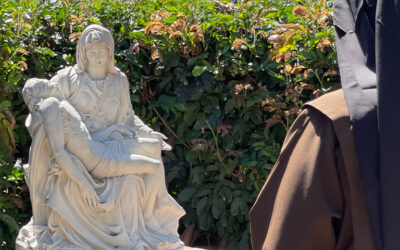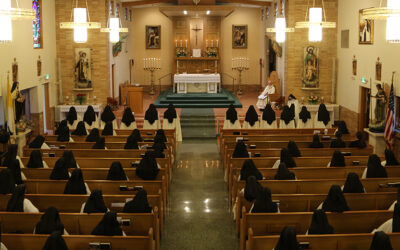“If you have men who will exclude any of God’s creatures from the shelter of
compassion and pity, you will have men who deal likewise with their fellow men.”
-St. Francis of Assisi
The book of Genesis tells us that after completing His intensive creative activity during the first six days, “God looked at everything He had made and He found it very good” (Genesis 1:31). Without doubt, the goodness and beauty of creation reflects the goodness, beauty and perfection of the Creator, and it is well to remember that there is nothing in the entire cosmos which does not owe its existence to God.
Genesis also tells us that after creating man in His image and likeness, God grants him “…dominion over the fish of the sea, the birds of the air, and all the living things that move on the earth” (Genesis 1:26-28) and that God entrusted care of the earth to mankind and encouraged him to “…cultivate and care for it” (Genesis 2:15).
This gift of dominion over all His creation does not grant mankind license to selfishly exploit nor does it mean a limitless authority to run rough shod over other living things on the earth. Rather, it means man is a caretaker who must exercise stewardship – careful, responsible and respectful management of the earth and its resources that have been entrusted to his care. Wisely caring for and cultivating the earth allows for God’s creative act to continue to unfold harmoniously and, on man’s part, reflects respect toward all life and living creatures.
Through nature, we can also come to know God, because He is revealed through all He has created. The sun and its light and warmth, the moon and the stars illuminating the black velvety sky, the vast oceans and the dry land each teeming with life, the trees, the flowers and plants and animals all speak eloquently of God’s love, His nearness and certainly His artistic genius.
For the human soul yearning to connect with his Creator, delighting in creation is entirely reasonable, as reminiscent of St. Francis of Assisi, who never ceased to delight in God’s works as revealed in nature.
The Catechism of the Catholic Church speaks clearly about humankind’s relationship to the rest of creation:
“Each creature possesses its own particular goodness and perfection…. each of the various creatures, willed in its own being, reflects in its own way a ray of God’s infinite wisdom and goodness. Man must therefore respect the particular goodness of every creature, to avoid any disordered use of things which would be in contempt of the Creator and would bring disastrous consequences for human beings and their environment.
Take some time to seek the Creator in His creation and delight in it. Since each creature “reflects in its own way a ray of God’s infinite wisdom and goodness,” we get a glimpse of Him when we enjoy the beauty of the natural world. All that God has created is a gift for us and our gratitude is best returned to Him through our enjoyment and care for all that He has blessed us with!





